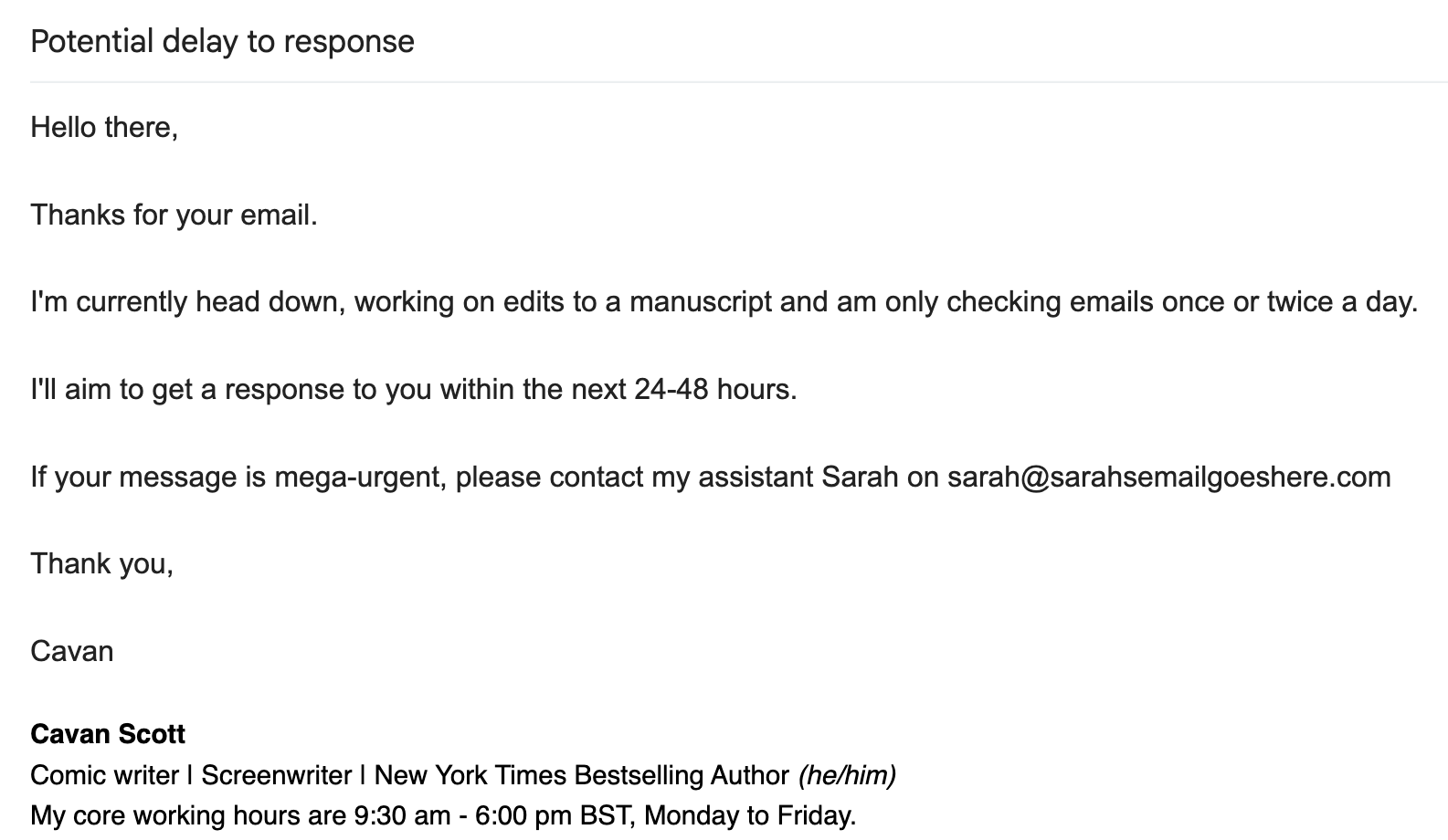Setting boundaries and managing expectations as a freelance writer

Hello there!
This will be a short newsletter, as time is even more of the essence this week. The plate-spinning continues, with deadlines, important family stuff, and trips away all vying for attention.
As a freelance writer, I've always believed in being as transparent as possible about my schedule. Just this week, for example, I had time put aside to work on a project that would take three days. Then, on Monday, I received news that the expected greenlight wouldn't occur until Friday, after the block of time set aside to write the thing. Usually, that's not a problem; you move things around, but in this case, I already had work commitments for the rest of the month, with every day already accounted for.
What could I do? Panic? Try to squeeze the shifted work in, anyway? Well, I could, but it wouldn't be good for anyone. I'd either have to do a rushed job, which would affect the quality of the work, or burn the midnight oil, working into the night to make up the slack. It's something every writer has done (this one included!), but can be disastrous for your mental and physical health if it becomes the norm.
So, instead, I sent an email politely explaining the situation before laying out the next available slot in my schedule for getting the work done, which in this case was 1st—3rd May.
Sending emails like that can be scary, as not being able to drop everything when the greenlight finally comes in might rule you out of the gig, but you also have to be realistic. At the end of the day, I want to do the best job, which means knowing what I can realistically fit into my working days.
It's also important to manage the expectations of others, especially those hiring you! Recently, I made a couple of additions to my email signature:

Will everyone spot the core working times and the upcoming out-of-office? Probably not, but the information is included nonetheless. Not only does it help set boundaries, it also manages the expectations of those I'm working with. Of course, I'll set the usual out-of-office bouncebacks when I'm away from my desk, but this is a way of letting people know before the event.
Another trick I've learned is setting bouncebacks for periods when I'm extra busy and, therefore, unable to reply as quickly as usual. This could be the days leading up to a major deadline or, like the rest of April, while I'm up to my eyes in edits on my latest manuscript.
The message goes something like this:

Again, it's all about managing others' expectations while also looking after yourself as you get the work done.
Speaking of which, I need to get my nose back to the grindstone. I'm interested to know how other writers set boundaries and manage expectations. Non-writers too, for that matter. Let me know by leaving a comment.
Until next time, look after yourself and each other.


